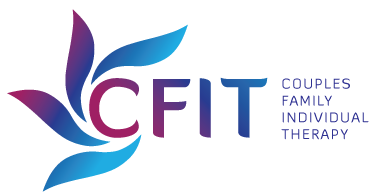Individual Therapy: Clinician or Coach? Find the Best Professional
/A person is his or her late twenties likes his/her current job, maintains a few friendships from college, has been dating someone for a few months but is not sure whether the other person is “the one”, and doesn’t have a clear picture of his/her future. S/he decides to consult a professional for some short-term sessions; should it be a clinician or a coach? The answer quite frankly is either.
A colleague attempted to refer that friend to me but the friend sought a “life coach” rather than a therapist because “you only see a therapist when you have a disorder.” It’s time to clarify that myth. I certainly help clients cope with a wide variety of disorders; however, numerous clients have also presented with a smorgasbord of life matters without having a mental health disorder.
Well respected therapists are able to decipher when clients need broad perspective approaches when the presenting concerns are not disorder based. Counseling sessions are often highly beneficial for clients who want to enhance their life goals. Whether one is a coach or a clinician, establishing a few appropriate attainable short-term goals is a critical aspect to begin the process to work with the client.
Another key to the coach or clinician question involves the primary catalyst for seeking assistance. I received a call from a former client; about three years earlier, she was one of two partners who sought couples therapy when their partnership was in crisis. They worked collaboratively on the changes needed for themselves and finished the couples work within a few months. Recently, she was considering a career change and acknowledged experiencing some stress. Rather than take the case, I referred her to an Executive Coach that would be much more adept at helping her with the career decisions. The Coach also agreed to refer back to me for therapy if the stress symptoms became overwhelming. At the end of her work with the Executive Coach, the client’s stress had all but disappeared and she boldly made the career change with “no therapy required.”
Years ago, I received a referral for an adolescent who had been working with an Educational Coach about school performance matters but was not achieving significant progress. My initial assessment with the student provided immediate clues as the student admitted to his “recreational” drug use, whose frequency and complications truly was a case of substance abuse that required appropriate treatment. Once the student ceased the drug use, he returned to the coach for the school performance matters and subsequently increased most of his grades by “two letters” during the next semester.
As a clinician, I am disappointed when my credentials as a mental health counselor have me “ruled out” compared to seeking the services of a life coach. Clinicians often bring a wealth of life experience and clinical expertise to their counseling sessions. Clinicians often work with clients on present circumstances, and when necessary, make connections to past experiences or behavioral patterns.
There are also several coaching specialists that offer specific experience that will result in goal achievement without a clinician needing to be involved. Whether you are considering coaching or counseling, review the credentials of the prospective professional. Ask them about their comfort zone to refer and consult with other clinicians and coaches. Then make the best choice of a professional match for yourself.
(Thanks to Dalia Marvin, Owner, Think BIG Tutoring and Coaching and to Scott Boozer, Director of Executive Development at First Data for their consultation and feedback related this posting.)


